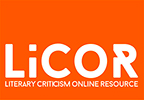In the animated film we watched at the start of this unit, we were told that two of the primary benefits narrative gives us are pleasure and a way of understanding and giving meaning to ourselves and the world around us. Let us evaluate each of these claims in turn.
Many people would probably agree that we often find the telling and hearing of stories pleasurable – at least if they are told well. It is not all that easy, however, to explain why this is the case. One of the earliest literary theorists in the Western tradition, the ancient Greek philosopher Aristotle, claimed that we enjoy making imitations (or representations) of ourselves, other people and the world around us in large part because this constitutes one of the most effective ways in which we acquire knowledge about ourselves, other people and other things. The acquisition of knowledge, in Aristotle’s view, is one of the most pleasurable sensations we humans can experience.
Aristotle was particularly interested in the kinds of plots that give us the most pleasure. Perhaps unsurprisingly, these turn out to be (in his view) the ones that give us the most heightened sensation of having understood something. While we may also learn things from plots that are boring and predictable, he conceded, this knowledge is slow in developing and is likely to be about something unsensational and something we could have worked out for ourselves. Plots that contain twists and turns, sudden moments of recognition and surprise, on the other hand, give us an intensified sensation of pleasure because we feel all the joy of having understood something we had not suspected or known before rush upon us all in one go. Subsequent studies of the pleasure we derive from narrative have for the most part built upon Aristotle’s claims in this regard, arguing that what we enjoy as much as anything else in a good narrative is the pleasure of having our expectations variously thwarted and/or fulfilled in ways that keep us emotionally as well as intellectually engaged in what is going on.
Of course, this belief that we derive pleasure from reading narratives because they help give us knowledge about ourselves, other people and the world around us depends on the truth (or, perhaps, on the illusion of the truth) of the corresponding belief that narratives really can teach us something. As we saw in the film, this perception that narratives help make sense of the universe and human experience is premised on their presumed capacity to illuminate and/or impose an order on those things that connects them up to a coherent and consistent storyline.
Next: Dangers of narrative
